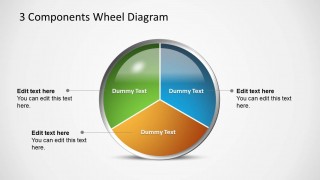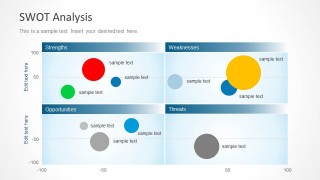Learn more how to embed presentation in WordPress
Copy and paste the code below into your blog post or website
Copy URL
Embed into WordPress (learn more)
Comments
comments powered by DisqusPresentation Slides & Transcript
Presentation Slides & Transcript
AARP CampaignsBelén Mendoza, VP Campaign Management@Belenmendoza
What is an Issue CampaignAn issue campaign is an organized effort to educate, advocate, and mobilize support around a specific issue that will benefit an organization in a positive way.Sometimes we are advocating to PASS a measureSometimes we are advocating NOT TO PASS a measure
Why a Campaign?To shape public opinion and mobilize support to ensure outcomes that meet a candidates or organizations goals.Candidate – To win an election.Organization – To pass or defeat an action that benefits an organizations outcome in a positive way.
Keys to Success.TALK AND LISTEN: To the right audience.PERSUADE:Persuade those open to new information.MOTIVATE:Motivate unmotivated people who are reluctant.
What do you need?Before anything else, you need a GOALSet your Goal Develop a strategyUnderstand your resourcesMoneyPeople TimeArticulate your positionResearchMessageGet your message out TargetingVolunteersUse the Media Make sure you understand the Election Laws and Campaign Finance Rules, and any Lobbying regulations in your state.
Writing a PlanIf it isn’t in writing…it doesn’t exist.Rules of planning:Be specific and quantifiableInclude a detailed budgetInclude a detailed timelineBuild accountability into the planEnsure that the plan can adjust to changing circumstances
Using ResearchHow will research advance your goals? What is the strategic purpose of your research? Is this internal/messaging and/or publicly released polling?If the research is for external purposes, who is the target audience for the research? And how will you use the research results?
Developing your MessageIdentify and Know your audienceBe DisciplinedRepetition MattersRepetition MattersRepetition Matters
TargetingTargeting prioritizes your three most valuable and fundamental campaign resources: TIME MONEY PEOPLE
TargetingNot everyone registers, votes, cares, or listens about your issue.Don’t underestimate the intelligence of your audience, andNever overestimate their interest.
Grassroots OrganizingPhones/textsEmailSocial mediaDirect mailLocal eventsIn person visits
Grassroots OrganizingKeep grassroots messaging simple but always allow people to use their own wordsCoordination is the keyVolume is important but personalization is criticalBest practice combines high volume with individualized personalized messagesMake sure legislative targets see real people in person to make the high volume have a context
Volunteers MatterThe old “time, people, money” reasonBuild grassroots support/ a “people-oriented campaign”Volunteers do it better!Passionate about the issue Policy ConcernPersonal ConnectionSocialOpportunityRecognition
Make the Media Work for YouDevelop the story you want to tellUse Testimonials: News media love to put a human face on a storyUse data to help substantiate your storyPolls are a great way to generate media coverage provided the questions are balanced Cover multiple platforms: Op-EdsLetters to the EditorBlog
Using Paid MediaDefine the goal of the advertising. How you buy advertising is very dependent on what you want to get out of it TV ads are great for building awareness, but they rarely drive someone to a website to take an action.take action online run online advertising. call a phone number print or radio work best. Targeting
Social Media is a MUSTThe world spends one in every four and a half minutes on social networks.
Tweet! Facebook! Pinterest!
Social Media is a MUSTTo listenInfluence public policyRaise the profile of your issuesEngage and recruit new advocates, volunteers and donorsDeepen relationship with current followers.Generate media attention
Social Media is a MUSTOffer simple engagements, such as polls, tagging photos, or asking users to “like” a status updateShare news stories and articles relevant to your audienceTarget fan page updates or Facebook ads to promote local events or actionsUse questionnaire results to target social media share asks on Facebook and TwitterUpdate and maintain the events tabUse popular hashtags, tag relevant users in your postsFollow, follow, follow!






